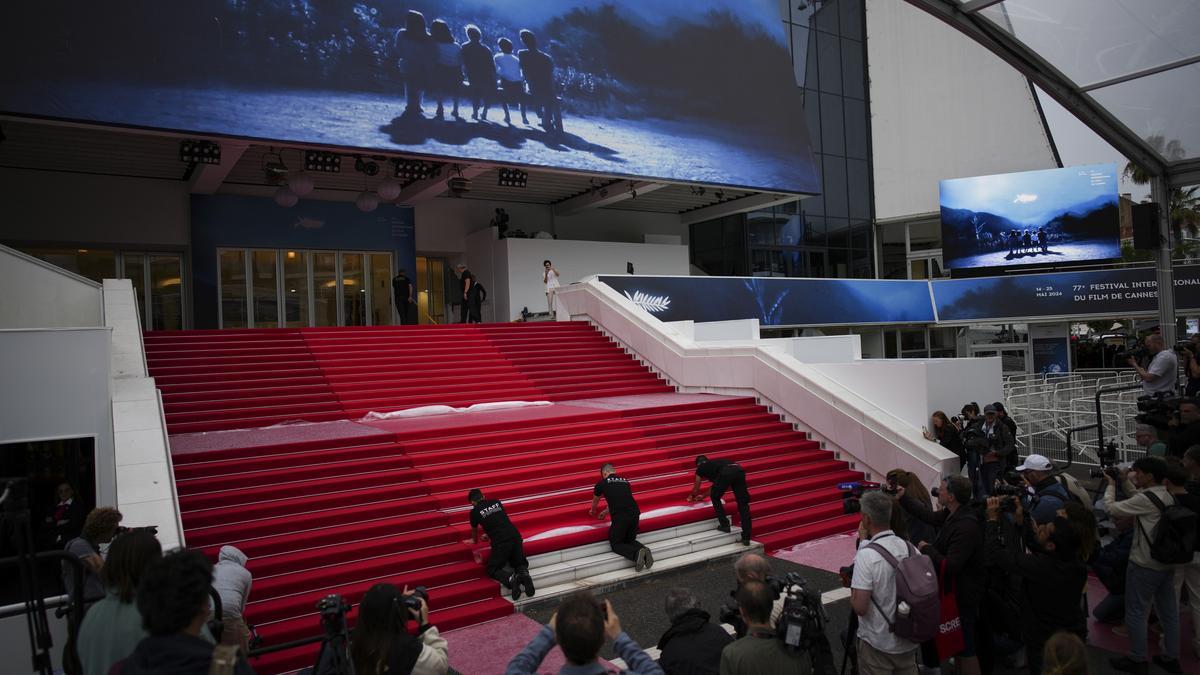
Amidst the glitz and glamour that envelops the French Riviera during the prestigious Cannes Film Festival, a significant cultural rebranding took place at the 77th edition of the event. The India Pavilion, a cornerstone for Indian cinema at the festival, unveiled its new identity as the Bharat Pavilion in a formal ceremony held on a sunny Wednesday morning.
This renaming marks a pivot towards honoring India’s rich cultural heritage and its traditional narratives. Sanjay Jaju, the diligent secretary of the ministry of information and broadcasting, articulated the deeper significance behind the change. He emphasized, “It symbolizes the country’s assertion of its traditional storytelling practices while it actively looks for collaborations with the rest of the world.” This rebranding echoes India’s growing confidence on the global stage and the ambition to forge stronger creative bonds across borders.
The grand inauguration sparked an air of excitement and was graced by prominent figures such as the festival’s deputy artistic director Christian Jeune, the celebrated Indian-Canadian filmmaker Richie Mehta—renowned for gripping web series like “Delhi Crime” and “Poacher”—and the esteemed Jawed Ashraf, India’s ambassador to France and Monaco. Their presence signified the importance placed on this cultural monument.
Sanjay Jaju, with his acute understanding of cinema’s role, poetically described India as the world’s sutradhar, translating to ‘narrator’—a fitting metaphor for a nation whose narratives have permeated global consciousness. “The large Indian presence at the festival is a recognition of that status,” he continued, affirming India’s influential role in the cinematic dialogue.
Taking a more subdued note, Jaju shied away from projecting Indian cinema as a dominating force, preferring to highlight its ‘soft touch’. He believes that the power of Indian movies lies in their reach and impact, fostered by both a robust domestic film industry and the influential Diaspora. This soft touch, he proposes, should not be overshadowed by the conventional discourse of power dynamics in global cinema.
The energy around the pavilion was heightened by the announcement that India has made a triumphant return to the Cannes Competition with a film from a talented young filmmaker. A testament to the nation’s ever-evolving artistic prowess, this acknowledgment serves as a beacon for future generations of storytellers who aspire to gain international acclaim.
Jawed Ashraf supplemented this sentiment in his address, drawing attention to the sometimes-superficial perception of Cannes as merely a showcase of fashion and red carpet flare. Ashraf insisted that, at its heart, the festival is a homage to cinema and the intricate business of filmmaking. He highlighted the assembly of the best of world cinema, uniting to celebrate their craft and introduce the vanguards of the future.
This year’s considerable Indian lineup at Cannes stands as an acknowledgment of the vast strides Indian cinema has taken. The diversity in genres, themes, and storytelling techniques underlines an industry at the zenith of creativity, unbound by convention, ready to explore uncharted territories and forms of expression.
As the festival continued its course, the Bharat Pavilion stood out as a beacon of India’s renewed vision and expansive cultural diplomacy. It is a space dedicated to dialogue, exploration, and collaboration, inviting filmmakers and enthusiasts alike to ‘Create in Bharat’ and partake in the unfolding narrative of Indian cinema—a narrative that richly contributes to the global tapestry of film.












